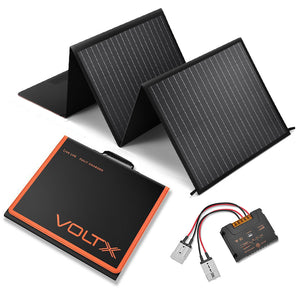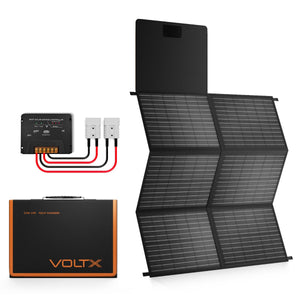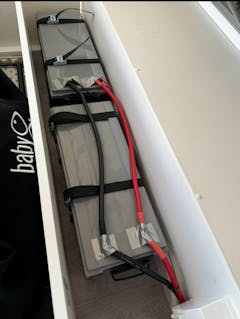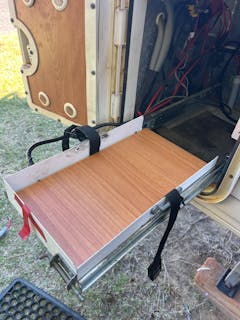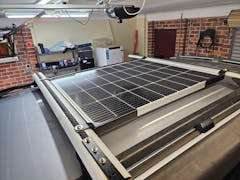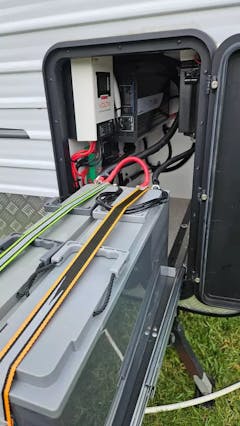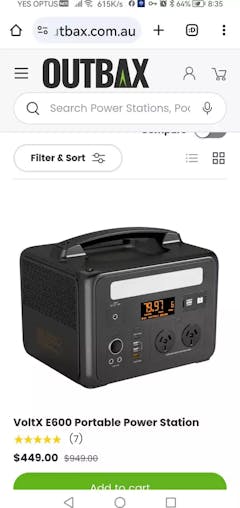Since solar panels are getting more popular every year, a lot of stores sell them in bundles to appeal better to customers. They could come with an accessory, power station, another type of solar panel or in a complete set which is often referred to as solar panel kits. A solar kit is a pack of solar energy generation equipment for easier assembly and installation, especially for first-time users. The main selling point for this is convenience and some shops even sell different types of solar kits such as starter kits, premium kits, RV solar kits, and home solar kits.
What Does a Solar Panel Kit Contain?
Typically, a solar kit contains all the essential components required to install a solar power system. The components are mostly dependent on your provider but generally, every type of kit may contain different inclusions. Off-grid solar power kits may have batteries, solar panels, a racking system, and a power centre. Home solar kits may have a solar panel, inverter, and racking system. There are complete kits as well which even includes a battery backup. In some cases, sellers allow customised kits if the application or project requires it.
Solar kits also eliminate the need to separately buy solar panel accessories such as regulators, mounting brackets, cables, and electric connectors. Everything is packed in a single item, eliminating the guesswork of which accessories are compatible with certain types of panels.
What Size of Solar Kit Do I Need For My House?
Before buying a solar panel kit for your home, you need to consider other factors aside from budget and available space. To ensure maximum value from your solar panel, calculate your kWh usage first. To do this, gather your electricity bill for a full year and look at its peaks and valleys. Most of the time, energy consumption is highest during summer and winter due to the constant use of air conditioners and heaters. Add 12 months of your kWh usage and divide by 12 to get your average monthly consumption, then divide again by 30 to determine your daily kWh usage.
Knowing your location's peak sun hours is important as well to be able to get the most out of your solar power system. You can refer to a sun hours charts for this or write own the daily average of peak sun hours in the nearest city to you.
Finally, in order to properly determine the size of solar system you need, divide your daily kWh energy consumption by your peak sun hours to get the kW output. After this, divide the kW output by your panel's efficiency to get the average number of panels you will need for your system.
Are Solar Panel Kits Worth It?
If you're using it for your household, your solar panel kit’s value is dependent on several aspects like location, roof angle and the sum of your electricity bills per month. You will have to check on these first to make sure that you get the best value out of your solar power system in case you decide to have it installed.
When used for outdoor activities, solar system kits make a great investment, especially for camping enthusiasts. For one, the panel you will need will most likely be a portable one such as a folding solar panel or flexible panel so there's no need to install it. Solar power gives you a green source of electricity that is free, perfect when you're travelling to remote areas with no access to power. It also adds comfort to your trips, as you won't have to worry about running the appliances you want to bring.
More From Outbax
Still curious about solar panel kits? Take a look at Outbax's solar range or read through Popular Uses and Safe Set Up Tips of Solar Panels. We have different kinds of camping and even caravan solar panels for every camper out there, shingled panels, and even solar mats to choose from. Outbax also caters to other portable power sources so if you'd like an alternative, we have available inverter generators, power stations, and lithium batteries too. For beginners, our dedicated customer service team is more than happy to assist you in choosing the right panel up to its maintenance even after your purchase.
